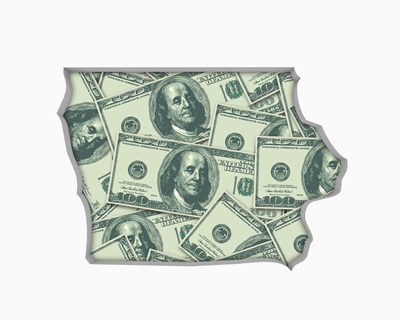Critics knock Iowa’s Sales Tax Holiday as inefficient
August 1st, 2025 by Ric Hanson
(A report by the Iowa Capital Dispatch) – The state of Iowa’s Annual Sales Tax Holiday is today (Friday) and tomorrow (Saturday), during which some clothing items will be free of sales tax for 48 hours, but critics argue the narrow scope and minimal exemption time makes it an inefficient solution for tax relief and economic growth. The annual tax holiday in Iowa is applicable to clothing items — specifically “any article of wearing apparel and typical footwear intended to be worn on or about the human body.”
Any individual clothing item under $100 that fits this definition, with several exceptions, purchased after 12:01 a.m. on Aug. 1 until midnight on Aug. 2, will be free of Iowa’s 7% state sales tax. All businesses open during that time are required to participate. The tax relief program began in 2000 and was spearheaded by former state Rep. Mike Cormack, a Republican legislator from Fort Dodge. However, critics at Institution on Taxation and Economic Policy argue this method is an inefficient vehicle for providing tax relief or generating substantial economic activity while providing “significant downsides.”

Iowa IA Money Map Cash Economy Dollars 3d Illustration
“Sales tax holidays are ineffective and gimmicky,” said Miles Trinidad, ITEP state analyst, in a press release. “While policymakers often tout them as helping families save money for essential goods, these holidays fall far short of lessening the regressive nature of sales taxes on the low and moderate income households who feel these taxes the most while also depriving states of revenue, being easily exploitable, and creating administrative headaches.”
ITEP estimates the amount of lost revenue for 2025 will be equal to $1.3 billion across states and localities. They argue this will “ultimately have to be made up elsewhere either through painful spending cuts or increasing other taxes.”
Critics at The Tax Foundation argued in a press release that sales tax holidays:
- Do not “promote significant economic growth or increase consumer spending” but rather shifts the timing of regular purchases.
- Are not an efficient response to inflation that encourages spending during a limited timeframe when supply chains “are already strained.”
- “Create complexities for tax code compliance, efficient labor allocation and inventory management.”
- Are not effective in providing tax relief to lower-income individuals because they give “large savings to higher-income groups as well.”
The Tax Foundation also argues that the popularity of these holidays is in part due to corporate lobbying to secure “free advertising for what is effectively a 4 to 7 percent discount.” They added these holidays create a space for politicians to “pick political favorites in the process of selecting eligible products” and the narrow list of goods can become an “unholy matrimony of central economic planning and corporate lobbying.”
Currently, 19 states have or will hold tax holidays. States like Oklahoma and West Virginia also exempt clothing items during their state’s tax holiday whereas states like Massachusetts, Nevada and Alaska are less restrictive in what types of products are eligible.


